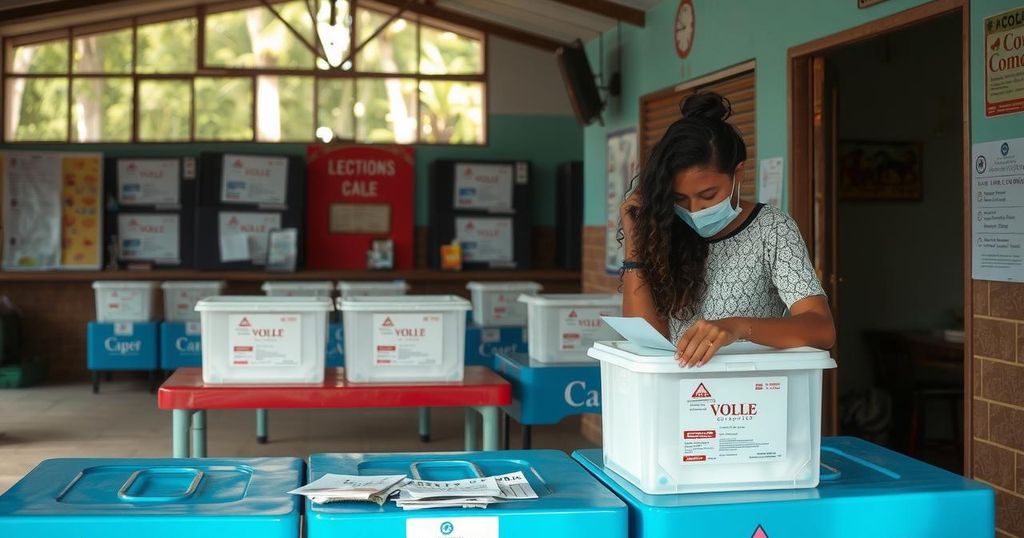Comoros Election Faces Opposition Boycott Amid Transparency Concerns

On Sunday, Comoros held elections for lawmakers amidst opposition boycotts due to transparency concerns. President Azali Assoumani’s son, Nour El-Fath, is running for a parliamentary seat. Logistical issues marred the process, raising privacy concerns. Observers expect the ruling CRC party to again dominate parliament, extending its influence following allegations of past electoral fraud and violence after Azali’s contested reelection.
On Sunday, the Indian Ocean island nation of Comoros commenced elections for its lawmakers amidst significant opposition-led boycotts citing a lack of transparency in the electoral process. Nour El-Fath Azali, the eldest son of President Azali Assoumani, is contesting for a parliamentary seat near the capital, Moroni. Notably, the electoral process faced logistical challenges, with reports indicating that some voting booths opened late due to delays in the delivery of materials. Observers noted improvised arrangements for casting ballots raised concerns regarding voter privacy.
Moreover, critics have stated that Nour’s ascendancy to the position of secretary general, a role equated to that of a de facto prime minister, enhances the ruling party’s control over the government. This scenario unfolds following Azali’s controversial reelection as president in January 2024, which was marred by allegations of fraud and subsequent protests.
Voter turnout appears to be impacted by the opposition’s lack of confidence in the electoral process, leading some candidates to still participate to prevent a repeat of the 2020 legislative elections, which were similarly boycotted. Observers expect the ruling Convention for the Renewal of the Comoros party (CRC) to once again secure a dominant position in parliament, particularly in constituencies where they face little to no competition.
The Comorian elections are scheduled for two rounds, with around 340,000 registered voters participating to elect thirty-three members of parliament. The second round is set for February 16, 2024. President Azali’s prior election in January 2024, amid bloodshed and turmoil, raised profound concerns regarding the integrity of the electoral process in the nation of approximately 870,000 inhabitants. Opposition claims of electoral fraud have yet to see judicial redress, further complicating the nation’s political landscape.
The political climate in Comoros has been tense due to allegations of electoral fraud and governmental repression. President Azali Assoumani’s administration has faced criticism for lack of transparency and accountability, particularly regarding the election process. The opposition has often been marginalized, leading to calls for boycotts against the ruling party, which has dominated previous elections. The upcoming parliamentary elections are crucial in determining the future political landscape and governance within the nation, especially since claims of electoral malpractice were rampant during Azali’s last reelection, which resulted in civil unrest.
In summary, the elections in Comoros reveal a deeply polarized political landscape characterized by opposition boycotts due to perceived electoral improprieties, logistical challenges during the voting process, and fears of the ruling party consolidating power. With Nour El-Fath Azali stepping into a crucial role and expected gains for the CRC, the future of Comoros’ democracy remains uncertain, necessitating vigilant observation and engagement from both national and international stakeholders.
Original Source: www.arabnews.com








